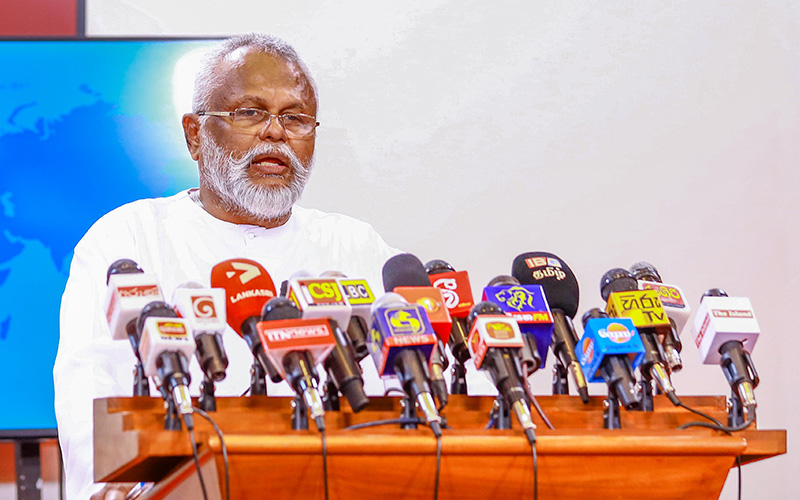Devananda calls for end to illegal fishing by Indians in Lankan waters
Posted on March 11th, 2024
Courtesy The Island

Douglas Devananda
Sixty-nine Sri Lankan fishing boats are in Indian custody, Minister of Fisheries Douglas Devananda has said during a recent televised interview.Hundreds of Indian boats arrive in Sri Lankan waters and use destructive bottom trawling techniques in the territorial waters of Sri Lanka, the Minister said.
They have destroyed all marine resources in the Indian territorial waters using these disastrous techniques and they are doing the same in our waters. This has been happening for a long time and things have gradually become worse. That is why our fishermen are protesting.”
Devananda said that during the war, Sri Lankan fishermen had not been able to fish in certain parts of the country’s territorial waters. During our absence, Indian fishermen started poaching in our waters, he said.
Now, our fishermen are back but the Indians are not stopping. They are extracting our resources. The war ended 15 years ago, and we have still not been able to solve this. This is partially our fault. We have not taken up this issue forcefully. We must tackle this issue legally and diplomatically,” he said. Sri Lanka has banned bottom trawling in 2017/18 and the Fisheries (Regulation of Foreign Fishing Boats) Act of 2018, Sri Lanka has a number of tools it can use to tackle poaching by Indian fishermen.
We now arrest and jail owners and skippers of Indian boats. There are five Indian skippers in Sri Lankan jails now. The Tamil Nadu Minister of Fisheries spoke to me on the phone recently and asked me to come there for discussions to solve the fishermen’s issues. I said I will come if you stop your fishermen coming this way. He agreed.
I also spoke to Tamil Nadu Chief Minister, Stalin and he also agreed to stop Indian fishermen coming this way. This is election time in Tamil Nadu. Once the elections are over, we can start negotiations,” he said. Devananda said he spoke to President Ranil Wickremesinghe almost on a daily basis and urged the latter to deploy the Navy to chase away Indian fishermen. The President had also given instructions to the Navy, but the scale of our response is inadequate, he said.
Tamil MPs visited India often and they met the Indian High Commissioner and his deputies here, Devananda said, adding that they hardly talked about the issues faced by Sri Lankan fishermen with Indian officials, he said.”Earlier, Tamil Nadu asked me to allow Indian fishermen to use Sri Lankan waters for two years. I said that could not be done.
The Indians arrive in hundreds of boats and they can cause irreparable damage in a single day. The 1974 and 1976 agreements, taken together with the Exchange of Letters, were signed between Kewal Singh, the then Foreign Secretary to the Government of India, and W.T. Jayasinghe, then Secretary to the Ministry of Defence and Foreign Affairs of Sri Lanka, has put the question of fishing rights beyond doubt.
Paragraph 1 of the Exchange of Letters very clearly rules out any fishing rights for the fishermen of the two States in the waters of the other State which reads as follows; fishing vessels and fishermen of India shall not engage in fishing in the historic waters, the territorial sea and the EEZ of Sri Lanka, nor shall the fishing vessels and fishermen of Sri Lanka engage in fishing in the historic waters, the territorial sea and the EEZ of India, without the express permission of Sri Lanka or India, as the case may be.”
While Indians lost access to Sri Lankan waters, local fishermen lost access to Pedro Bank, and Wadge Bank, the continental shelves off Cape Comorin at the southern tip of India, which had been profitable commercial fishing grounds since the 1920s for both Indian and Sri Lankan boats.